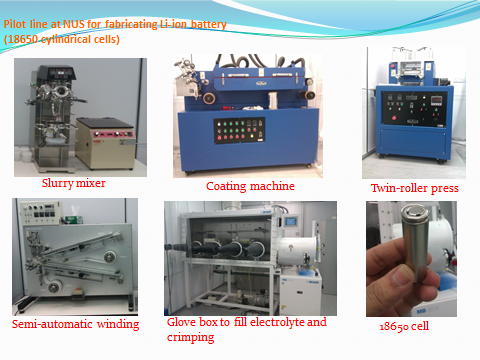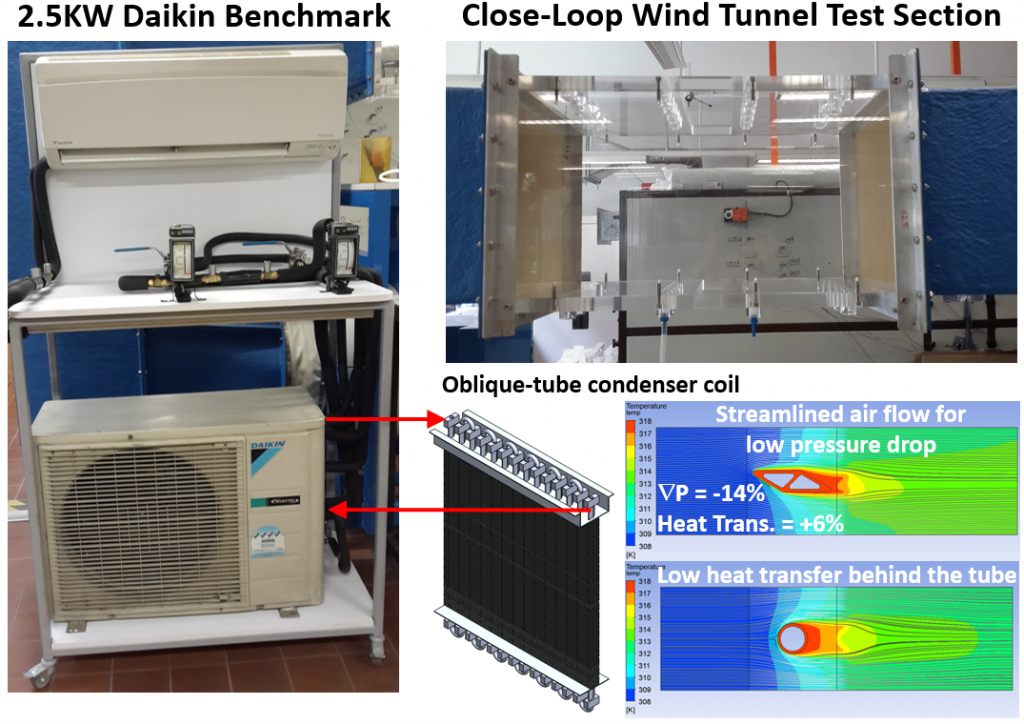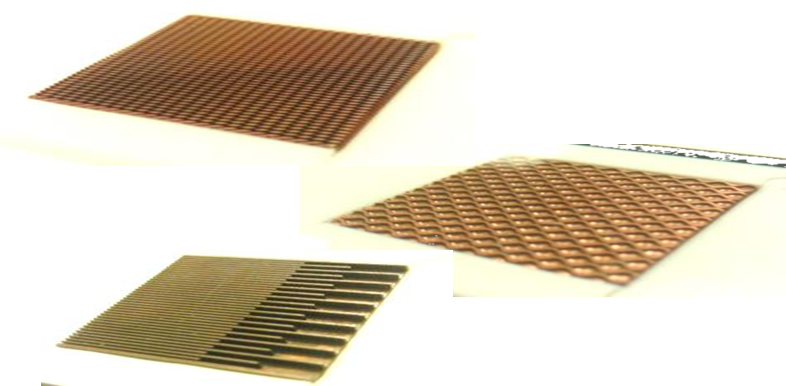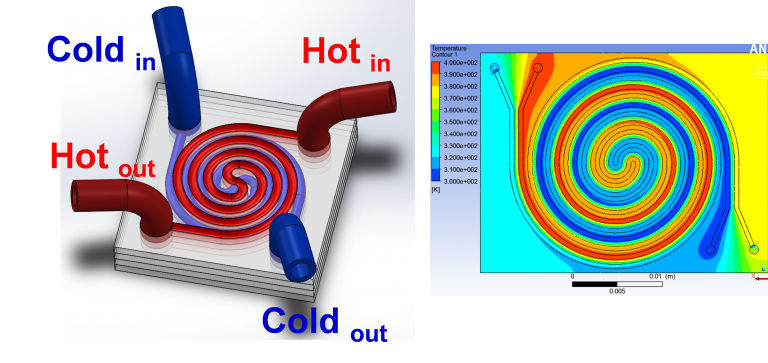Energy efficient thermal and storage system
Improved energy efficiency not only lead to cost savings, it helps control global emissions of greenhouse gases. Over the years, the department has extended the fundamentals related to thermal and energy sciences to build up strengths in energy efficiency of thermal systems and energy storage systems. Examples of key efforts include:
- Development of thermal performance criteria of building envelopes and engineering tools to support the design of energy efficient air-conditioned non-residential and residential buildings. An example is the highly energy-efficient hybrid air conditioning technology for all weather conditions by first dehumidifying the intake moist air using novel membranes followed by conducting sensible cooling of the dehumidified air by multiple-pass of indirect evaporative cooling (IEC).
- Enhancement of energy efficiency of electronic devices (including emerging devices using 2D materials), both passively by reducing the thermal resistance of interfaces and actively by spot cooling of active regions using CMOS-compatible thermoelectric materials.
- Development of commercial (18650 format) type non-flammable sodium-ion battery using organic electrolyte with energy density close to 60Wh/kg at industry standards (TRL 4).
- Development of an advanced internal combustion engine platform which is able to accurately simulate the air flow, spray development, combustion and emissions formation in the engine. In addition, a multi-cylinder engine test bed with built-in-house data acquisition and control system has been built in our lab which allows us to investigate the performance of the engine under various operating conditions.
- Development of various novel fin structures for enhancing the efficiency of heat sinks, cold plates and heat exchangers which find applications in green data centre cooling, low energy buildings and low grade waste heat recovery.
Highlights of research grants and awards
| Award | Associate Professor Ernest Chua was conferred the “IChemE Energy Award 2017” on 19 October 2017. He and his team have developed a new approach that leads to the liberation of hydrogen and oxygen from waste-water in a remarkably energy efficient manner. The team has engineered an innovative and sustainable energy system. On top of that, the Team’s novel air-conditioning system is cost-effective to produce, and it is also more eco-friendly and sustainable. The system consumes about 40 per cent less electricity than current compressor-based air-conditioners used in homes and commercial buildings. This project is supported by the Building and Construction Authority (BCA) and National Research Foundation Singapore (NRF). |
| Research Grant | An Innovative Solar-Driven Air Treatment System for Improved Air Quality, Reduced Humidity Laod and Energy Efficient ACMV – funded by NRF and BCA, project duration from Aug 2014 to July 2017. |
| Funding amount: approx. SG$1,076,000 | |
| Principle Investigator (PI): Associate Professor Ernest Chua, Co-PI: Prof Chou Siaw Kiang, Collaborator: Associate Professor Yang Wenming | |
| Research Grant | Research, Development & Demonstration of a Highly Efficient Hybrid Cooling for High Ambient Temperature Data Centre – funded NRF Green Data Centre Programme, project duration from Oct 2016 to Sept 2019. |
| Funding amount: approx. SG$3,160,000 | |
| PI: Associate Professor Lee Poh Seng, Co-PIs: Associate Professor Peter Chen and Associate Professor Chai Kah Hin | |
| Research Grant | Development of Sodium-ion Battery Pack for Stationary Storage Systems – funded by NRF Energy Innovation Research, project duration from June 2016 to Feb 2019. |
| Funding amount: approx. SG$2,790,000 | |
| PI is Associate Professor Palani Balaya and Co-PI is Professor Lu Li. |
Pilot line at NUS for fabricating Li-ion battery

Energy Efficient Oblique Fin Air Conditioning System

Novel Fin Structures for Enhanced Heat Transfer

Polymer-based Heat Exchanger


